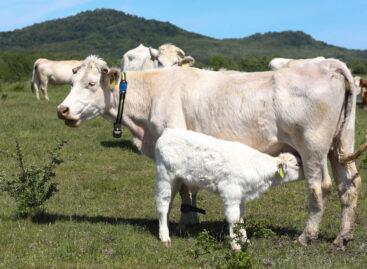The future of lab-grown meat: sustainable alternative or market challenge?
Lab-grown meat is meat produced using cell culture technology, which is grown in bioreactors without the slaughter of live animals. Although it may have many advantages in terms of sustainability, animal welfare and food safety, its widespread use still faces significant technological and economic barriers, the article in the Agricultural Sector points out.
Advantages and challenges of lab-grown meat
 One of the most important advantages of lab-grown meat is its reduced environmental impact, as its production requires less land and freshwater, and results in fewer greenhouse gas emissions. It also eliminates ethical concerns related to animal husbandry and can reduce the use of antibiotics, which could help slow the spread of antimicrobial resistance.
One of the most important advantages of lab-grown meat is its reduced environmental impact, as its production requires less land and freshwater, and results in fewer greenhouse gas emissions. It also eliminates ethical concerns related to animal husbandry and can reduce the use of antibiotics, which could help slow the spread of antimicrobial resistance.
However, production costs are still high, large-scale production requires infrastructure developments, and consumer acceptance can also be an obstacle. Aversion to new food technologies and a sense of unnaturalness can make many people hesitant to consume lab-grown meat.
Production process and technological developments
Lab-grown meat is produced by growing animal stem cells in a nutrient medium and then growing them into meat cells in bioreactors at controlled temperatures and nutrient levels. Food industry research is increasingly focusing on improving the efficiency of the production process to reduce energy requirements and costs.
Life cycle analyses suggest that lab-grown meat production is currently more sustainable than traditional livestock farming, but further research is needed to explore factors such as the way the nutrient medium is produced and the environmental impacts of the production infrastructure.
Related news
The 8th Meat Industry Professional Day will be held on Shrove Tuesday
🎧 Hallgasd a cikket: Lejátszás Szünet Folytatás Leállítás Nyelv: Auto…
Read more >Beef: Statistics are lagging behind despite a 40% increase in store prices
🎧 Hallgasd a cikket: Lejátszás Szünet Folytatás Leállítás Nyelv: Auto…
Read more >Four tons of meat products seized in Röszke
🎧 Hallgasd a cikket: Lejátszás Szünet Folytatás Leállítás Nyelv: Auto…
Read more >Related news
New country director at the helm of JYSK Hungary
🎧 Hallgasd a cikket: Lejátszás Szünet Folytatás Leállítás Nyelv: Auto…
Read more >








